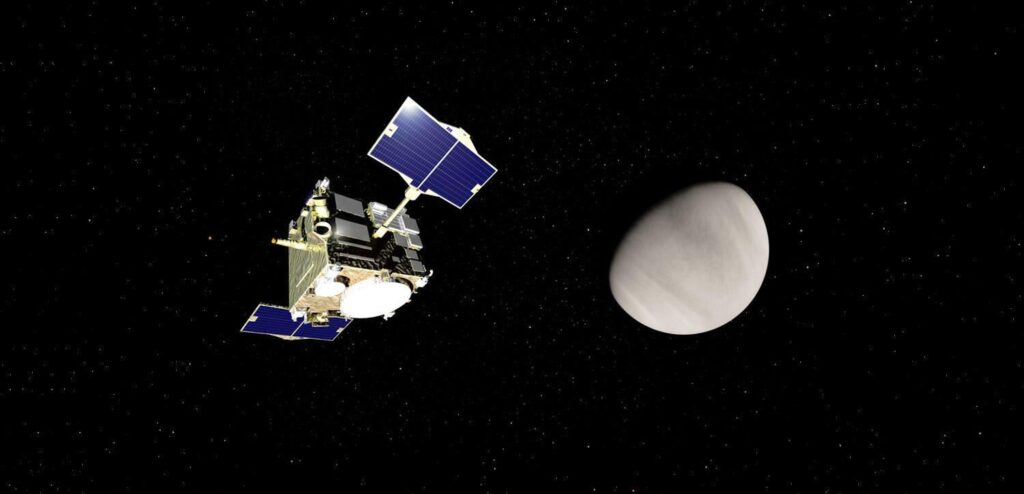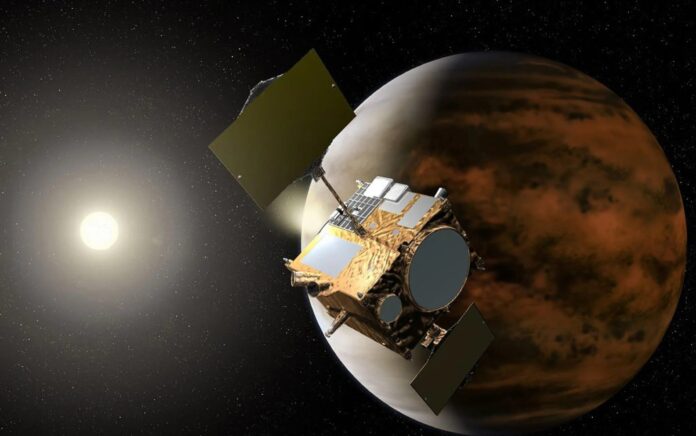The Japan Aerospace Exploration Agency’s (JAXA) Akatsuki probe, tasked with studying Venus’ atmosphere, has lost communication. Akatsuki was humanity’s only active probe orbiting Venus. Launched in 2010 aboard an H-IIA 202 rocket, Akatsuki entered Venus’ orbit in 2015, five years later than planned, to study the planet’s atmospheric layers, dynamics, and cloud physics. According to recent reports, contact with Akatsuki has been lost.
Last Active Probe Orbiting Venus
Akatsuki, also known as the Venus Climate Orbiter, was the only active spacecraft studying Venus, the second planet from the Sun. Since 2015, it has been orbiting Venus, often referred to as Earth’s twin, to gather critical data on its climate and atmospheric dynamics. However, the mission’s continuation is now uncertain due to the communication loss.

JAXA’s recent announcement revealed that the Institute of Space and Astronautical Science (ISAS) lost contact with Akatsuki following an operation conducted last month. Efforts are currently underway to re-establish communication with the probe. It appears that the spacecraft’s antenna might not be correctly oriented for communication.
Akatsuki’s Contributions and Challenges
Named “dawn” in Japanese, Akatsuki successfully completed its primary mission and has been in an extended operational phase for the past six years. While it remains uncertain if Akatsuki can resume its mission, the probe has provided invaluable insights into Venus’ climate and atmospheric dynamics.

Venus, although often called Earth’s twin, is vastly different in conditions. The surface temperature on Venus can reach up to 480°C, making it the hottest planet in our solar system. Its magnetic field is weak, and its atmosphere is predominantly carbon dioxide, exerting a pressure 90 times that of Earth’s atmosphere. This dense carbon dioxide atmosphere creates an intense greenhouse effect. Uniquely, Venus rotates on its axis in a clockwise direction, opposite to most planets in our solar system, causing the Sun to rise in the west and set in the east on Venus.

Future Prospects
As JAXA works to restore communication with Akatsuki, the scientific community remains hopeful for a positive outcome. The loss of contact highlights the challenges of interplanetary exploration and the need for robust communication systems. If Akatsuki’s mission cannot be resumed, it will mark the end of an era of direct observation of Venus. However, the data collected by Akatsuki will continue to benefit scientific understanding of our neighboring planet.
Conclusion
The communication loss with Akatsuki is a significant setback for Venus exploration. As JAXA attempts to re-establish contact, the scientific community reflects on the vital contributions of Akatsuki to our understanding of Venus. The mission underscores both the challenges and the importance of exploring and studying our solar system’s planets.

